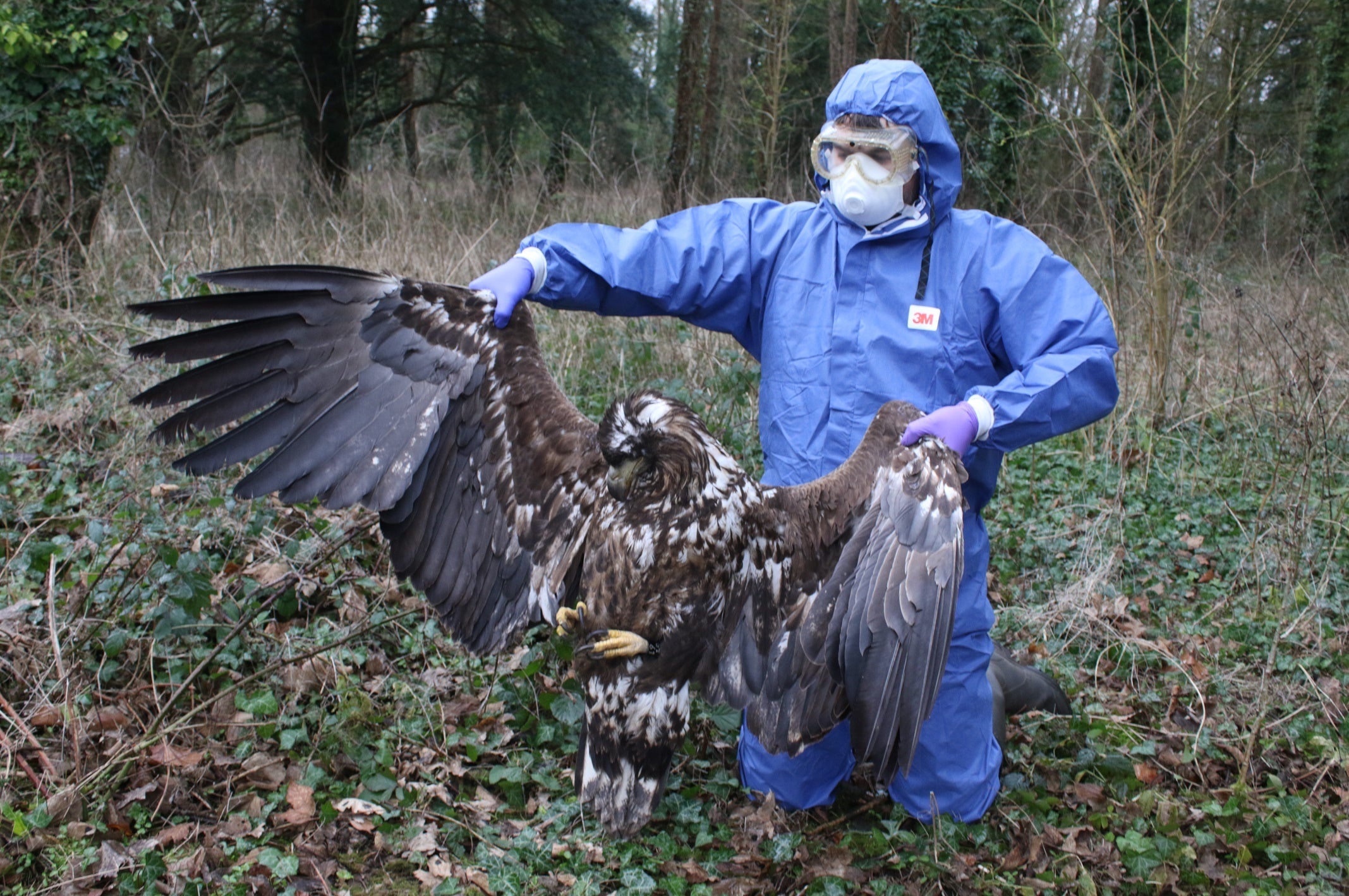Police to take no further action over ‘inconclusive’ death of white-tailed eagle
RSPB says it is ‘completely baffled by the decision’ to end the investigation.

Your support helps us to tell the story
From reproductive rights to climate change to Big Tech, The Independent is on the ground when the story is developing. Whether it's investigating the financials of Elon Musk's pro-Trump PAC or producing our latest documentary, 'The A Word', which shines a light on the American women fighting for reproductive rights, we know how important it is to parse out the facts from the messaging.
At such a critical moment in US history, we need reporters on the ground. Your donation allows us to keep sending journalists to speak to both sides of the story.
The Independent is trusted by Americans across the entire political spectrum. And unlike many other quality news outlets, we choose not to lock Americans out of our reporting and analysis with paywalls. We believe quality journalism should be available to everyone, paid for by those who can afford it.
Your support makes all the difference.No further action will be taken over the death of a white-tailed eagle reintroduced into southern England, police have said.
Dorset Police launched an investigation earlier this year into the death of the bird of prey, one of 25 eagles that have been released on the Isle of Wight as part of a reintroduction scheme, after its body was recovered in the county.
But examinations and tests on the bird were deemed to be “inconclusive”. While high levels of rat poison brodifacoum were detected, it was not possible to establish if it was a deliberate act of poisoning the bird, police said.
The RSPB said it was “completely baffled” by the decision to end the white-tailed eagle investigation prematurely, warning the poison was clearly being used incompetently or with intent to kill raptors, and was an illegal act.
The wildlife charity also said a land search of the estate where the bird was found for evidence of poison baits or misuse had been “recently and unexpectedly called off”.
In a statement, Dorset Police said an investigation was carried out with the RSPB, government agency Natural England, the National Wildlife Crime Unit and the charity behind the reintroduction, the Roy Dennis Wildlife Foundation.
“A detailed examination and tests have been carried out on the bird, which were inconclusive, and it has therefore not been possible to confirm that any criminal offence has been committed.
“While high levels of brodifacoum were detected, it has not been possible to establish whether this was as a result of a deliberate act or due to secondary rodenticide poisoning.
“As a result, no further police action will be taken in relation to this report.”
The white-tailed eagle found dead in Dorset was one of two released birds whose remains were recovered in the south of England in recent months.
Some 25 of the birds of prey, nicknamed “flying barn doors” because of their 8ft (2.4m) wingspan, have been released in the region since 2019, to bring back a long-lost species to the skies of southern England.
White-tailed eagles were widespread across southern Britain until the 18th century, when persecution led to them being wiped out. They have also been reintroduced in Scotland.
We are completely baffled by the decision taken by Dorset Police to end the white-tailed eagle investigation so prematurely
Despite being protected by law, birds of prey can be the target of illegal persecution because of perceived threats to the gamebird industry or farming, conservationists warn.
But the eagles can bring economic benefits through ecotourism, according to a report from the RSPB. This found that white-tailed eagles inspired tourism worth between £4.9 million and £8 million every year on the Isle of Mull, on Scotland’s west coast.
Responding to the statement from Dorset Police, Katie Jo Luxton, RSPB conservation director, said: “We are completely baffled by the decision taken by Dorset Police to end the white-tailed eagle investigation so prematurely.
“Brodifacoum – the rodent poison that killed the eagle – is highly toxic and it is clear that it was being used either incompetently or with intent to kill raptors. Either way, this is an illegal act.
“A thorough land search had been planned on the estate in question, to look for evidence such as poison baits or misuse, but that was recently and unexpectedly called off.
“The investigation has not been closed by the Health and Safety Executive but that has now been made defunct by the police communication.
“We seek assurance from Dorset Police that their wildlife crime remit is still operational and that other significant ongoing raptor persecution investigations are fully investigated ‘without fear or favour’ as per Police Oath.”